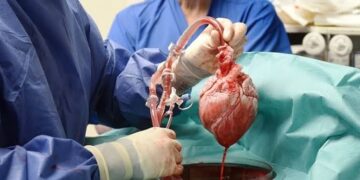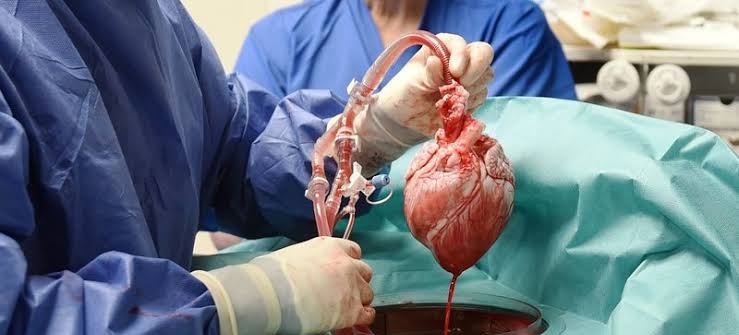By John Ikani
A 57-year-old Maryland man is doing well, three days after receiving a genetically modified pig heart in a first-of-its-kind transplant surgery, University of Maryland Medicine said in a news release on Monday.
The transplant was considered the last hope of saving Mr Bennett’s life, though it is not yet clear what his long-term chances of survival are.
“It was either die or do this transplant,” Mr Bennett explained a day before the surgery.
“I know it’s a shot in the dark, but it’s my last choice,” he said.
The US Food and Drug Administration granted emergency authorization for the surgery on December 31.
The surgery, conducted on Friday with emergency authorisation from the Food and Drug Administration, could open the door for greater organ access, according to the doctor who performed it.
“This was a breakthrough surgery and brings us one step closer to solving the organ shortage crisis. There are simply not enough donor human hearts available to meet the long list of potential recipients,” said Dr Bartley P Griffith in a statement.
Bennett’s doctors will need to monitor him for days to weeks to see whether the transplant works to provide lifesaving benefits. He’ll be monitored for immune system problems or other complications.
“There are simply not enough donor human hearts available to meet the long list of potential recipients,” surgeon Dr. Bartley P. Griffith said in a statement. “We are proceeding cautiously, but we are also optimistic that this first-in-the-world surgery will provide an important new option for patients in the future.”
Roughly 110,00 people are waiting for organ transplants in the US, and more than 6,000 die each year before they can be matched with an organ donor and brought in for surgery.
It is worthwhile to note that previous attempts of xenotransplantation have failed, largely because patients’ bodies rapidly rejected the animal organ. Notably, in 1984, Baby Fae, a dying infant, lived 21 days with a baboon heart.
The difference this time: The Maryland surgeons used a heart from a pig that had undergone gene-editing to remove a sugar in its cells that’s responsible for that hyper-fast organ rejection.
“I think you can characterize it as a watershed event,” Dr. David Klassen, UNOS’ Chief Medical Officer, said of the Maryland transplant.




































